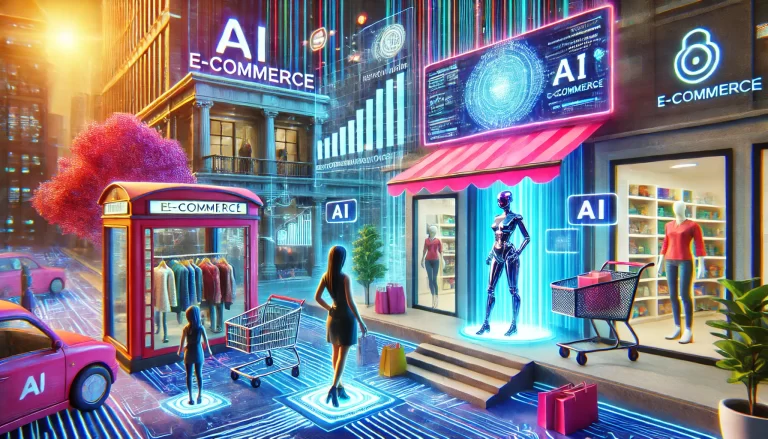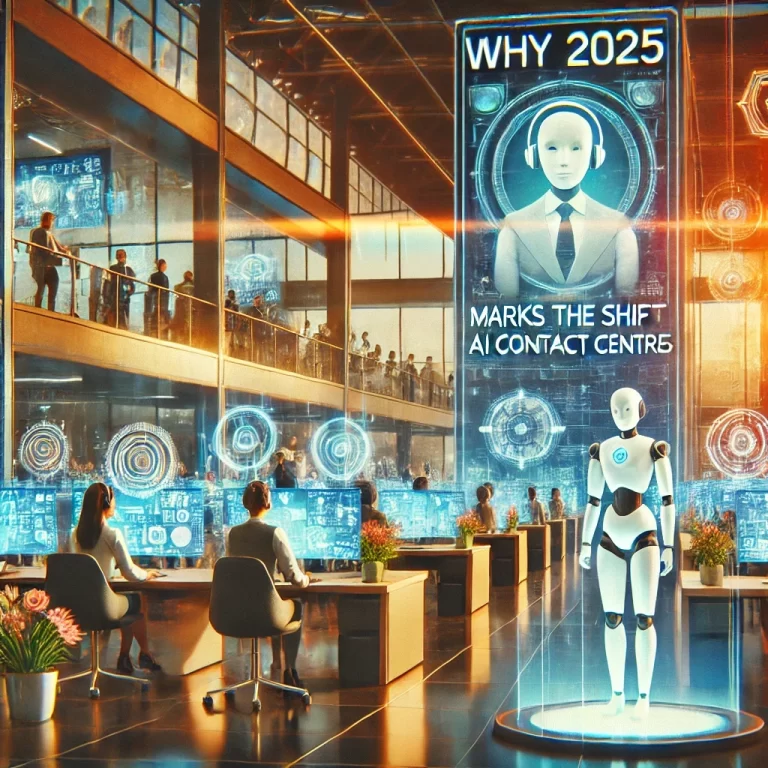In the ever-evolving landscape of modern business, staying ahead of the curve is not just an option—it’s a necessity. Technology has always played a pivotal role in shaping the future of industries, and today, Artificial Intelligence (AI) stands at the forefront of this transformation. While some businesses have eagerly embraced AI, integrating it into their operations and strategies, others remain hesitant, unsure of the potential benefits or wary of the challenges. However, the decision to ignore AI is not without consequences. In fact, not adopting AI can significantly hurt your business in a number of ways.
Falling Behind Competitors
One of the most immediate risks of not adopting AI is the likelihood of falling behind your competitors. AI has the power to streamline processes, enhance decision-making, and offer personalized customer experiences. Businesses that leverage AI can analyze data faster, predict trends more accurately, and respond to market changes with agility. Meanwhile, companies that resist AI are likely to find themselves outpaced, unable to keep up with the speed and efficiency of AI-driven competitors. In today’s fast-paced market, this lag can be detrimental, leading to a loss of market share and, ultimately, revenue.
Inefficient Operations
AI is designed to optimize efficiency. From automating routine tasks to analyzing complex data sets, AI can significantly reduce the time and resources required to carry out essential business functions. Without AI, businesses may find themselves bogged down by inefficiencies, relying on outdated processes that are prone to errors and slowdowns. This not only impacts productivity but also increases operational costs. Over time, these inefficiencies can erode profitability and hinder growth, leaving your business struggling to keep up with more agile, AI-enhanced competitors.
Missed Opportunities for Innovation
Innovation is the lifeblood of any successful business. AI opens up new avenues for innovation, enabling companies to develop cutting-edge products, services, and business models. By analyzing vast amounts of data, AI can uncover insights that would be impossible to detect manually, leading to the creation of new value propositions that resonate with customers. Businesses that fail to adopt AI risk missing out on these opportunities, limiting their ability to innovate and differentiate themselves in a crowded market. In the long run, this can stifle growth and make it difficult to adapt to changing customer needs.
Poor Customer Experience
Today’s customers expect personalized, seamless experiences, and AI plays a crucial role in delivering them. From chatbots that provide instant customer support to recommendation engines that offer tailored product suggestions, AI helps businesses meet and exceed customer expectations. Without AI, businesses may struggle to provide the level of service that customers demand, leading to dissatisfaction and churn. In a world where customer experience is a key differentiator, neglecting AI can result in a weaker brand reputation and lost sales.
Inability to Make Data-Driven Decisions
Data is the new currency in the digital age, and AI is the tool that enables businesses to fully capitalize on it. AI-powered analytics provide deeper insights, allowing companies to make informed decisions based on real-time data. This leads to better strategic planning, more accurate forecasting, and a clearer understanding of market trends. Without AI, businesses are forced to rely on manual analysis, which is often slower, less accurate, and limited in scope. This can result in missed opportunities, poor decision-making, and an inability to adapt to changing market conditions.
Increased Vulnerability to Risks
In an increasingly complex and interconnected world, businesses face a wide range of risks, from cybersecurity threats to supply chain disruptions. AI can help mitigate these risks by identifying vulnerabilities, predicting potential threats, and automating responses. Companies that do not adopt AI may find themselves more vulnerable to these risks, lacking the tools needed to detect and respond to threats in a timely manner. This can lead to significant financial losses, reputational damage, and long-term business disruption.
Difficulty in Attracting and Retaining Talent
As AI becomes more integrated into business operations, employees are increasingly seeking out companies that are at the forefront of technological innovation. Businesses that fail to adopt AI may struggle to attract and retain top talent, particularly in fields such as data science, engineering, and digital marketing. Employees want to work for companies that offer the tools and resources needed to succeed in a competitive landscape. Without AI, businesses may find themselves unable to provide the environment that top talent desires, leading to higher turnover and a less skilled workforce.
Conclusion: The Future is AI-Driven
The adoption of AI is no longer a question of if, but when. Businesses that choose to embrace AI will be better positioned to thrive, while those that resist will likely find themselves struggling to keep up. The risks of not adopting AI are clear: inefficiency, missed opportunities, poor customer experiences, and increased vulnerability. In contrast, the benefits of AI are numerous, offering the potential for greater innovation, improved decision-making, and a stronger competitive edge.
In the end, the choice is yours. Will your business be at the forefront of the AI revolution, or will it be left behind? The future is AI-driven, and those who fail to adapt may find themselves watching from the sidelines as their competitors surge ahead.
Embrace AI, and ensure your business is equipped to succeed in the digital age.
Contact the team at Acquire.AI today for more information on how AI can transform your business operations. Our experts are here to guide you through every step, from initial assessment to a full-scale implementation.


